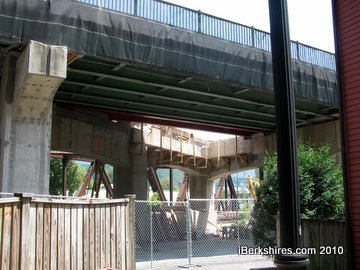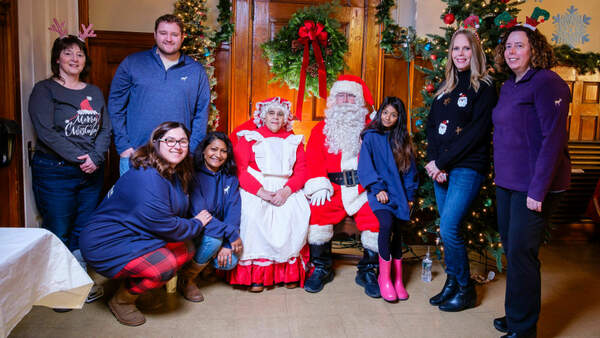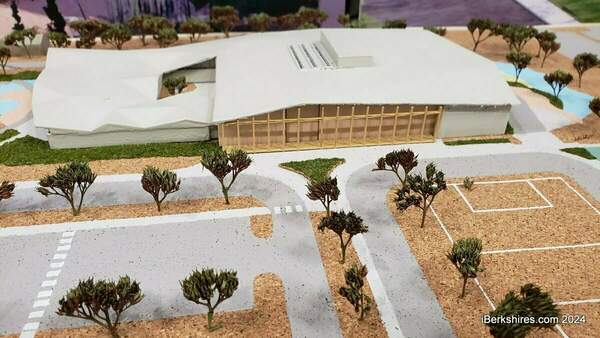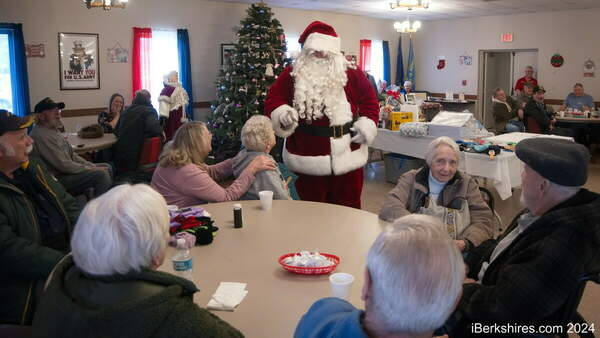
Judge Upholds Damage Award of $300K to Freight Yard Pub
 Freight Yard Pub was awarded $300,000 after a jury-trial in Superior Court found the city had breached 'good faith' with the pub. Freight Yard Pub was awarded $300,000 after a jury-trial in Superior Court found the city had breached 'good faith' with the pub. |
PITTSFIELD, Mass. — The Freight Yard Pub is owed in excess of $200,000 in damages from the city of North Adams, a judge has confirmed.
Superior Court Judge John A. Agostini on June 30 upheld a jury award of $300,000 for the North Adams pub for loss of revenue during reconstruction of the Hadley Overpass. Read the decision here.
The 13-member jury last November also found that the restaurant owed some $83,000 in back rent that would be deducted from the award, which Agostini also upheld.
Mayor Richard Alcombright said last week he was aware of the judge's decision but declined to comment pending negotiations over the settlement.
Attorney Christopher Hennessey of Cohen Kinne Valicenti Cook of Pittsfield, representing Freight Yard owners Colleen and Sean Taylor, said his clients may be prepared to speak later this week.
The restaurant, operating as Bay State Hospitality Group, sued the North Adams Redevelopment Authority and state Department of Transportation in 2011, three years after an adjacent parking area in Western Gateway Heritage State Park was fenced off for construction purposes.
The Taylors' suit claimed the 36-lot parking area under the bridge was "materially or substantially altered" in violation of their lease contract, so much so that it essentially amounted to a "constructive eviction." Patrons were unable to access the restaurant easily and the volume of customers decreased substantially.
The suit also stated that the business was in such dire straits caused by the parking deficit that it nearly had to cease operations. The Redevelopment Authority, it charged, had "misrepresented" the effects of the temporary and permanent eminent domain takings by the state.
The city countered that the landlord had a right to alter parking, that other parking was available, that the plaintiffs hadn't "exhausted" administrative remedies and that the Redevelopment Authority had qualified immunity.
The authority also countersued for back rent ranging from $90,000 to $117,000 due from a 2009 lease.
The Taylors, brother and sister, claimed they had been assured that parking would not be significantly impacted during the state bridge construction. Instead, the area underneath the bridge was blocked off completely for a lengthy period of time and the few open spaces were frequently used by construction workers.
They also say they had not been told the city signed a "land damage agreement" waiving all rights to damages with the state Highway Department, which prevented them from collecting compensation from the state as allowed by law. 1
In her deposition, Colleen Taylor said she learned that the parking lot closest to the pub (and under the bridge) would not be accessible for three years when construction crews began setting up for the project in 2008.
At the time, they had purchased Taylor's Fine Dining on Center and Holden streets with the idea that the pub could moved there.
Taylor said she had been dissuaded from moving by then-Mayor John Barrett III, after informing him in writing she was hiring an attorney because of a lack of information on the construction.
Barrett, as mayor, said he operated as the executive director of the Redevelopment Authority.2
"So I went into his office and he yelled at me for about an hour about how selfish I was being and inconsiderate that I was being" regarding the letter, Taylor said in her deposition.
"He said my idea for moving Freight Yard over to Taylor's was stupid and said that everything was going to be fine and I had no worries ... my parking wouldn't be interfered with."
Barrett, in his deposition, said he recalled her being upset.
"Basically, I calmed her down. Don't worry about it," saying that MassHighway had told him "the impact would be minimal from their point of view on how long they would be underneath that bridge doing their work ... ."
Later in his deposition, Barrett said, "and I took it as a discussion of trying to assist them and help them in any way I possibly could. Did I agree with everything in that conversation and their suggestions? No, I didn't."
He did remember telling them he "would do everything in my power to make sure there was replacement parking there for her and other tenants."
But he also said he had not discussed with or her brother any of the four state-proposed scenarios for alternative parking.
State Highway Engineer John Pierce, in his deposition, said he had been told not to contact the park's tenants.
"We had a meeting set up to discuss some issues, and I think at one point we were going to do weekly or biweekly meetings, we had people/tenants in the Heritage Park businesses, you know, aware of what was going on with the project, and Mayor Barrett put a kabosh (sic) to that, he didn't want us to do it," said Pierce. "He said if they had issues, they would deal with him."
The state had proposed building more parking within the park itself but, according to Pierce, Barrett disagreed because trees would have to be cut down.
 Above, the parking lot closest to the pub is fenced off in 2010; below, the same spot now. Above, the parking lot closest to the pub is fenced off in 2010; below, the same spot now.  |
In an email to District 1 Highway Superintendent Peter Niles submitted as evidence, state Construction Engineer Mark Ringie asks Niles to speak to the mayor about the issue.
"Today John [Pierce] was showing the Mayor the proposed temporary parking location at Heritage Park and pointing out which trees would be removed. The Mayor told him he did not want us to construct the temporary parking because it was not needed.
"This isn't a very good start to the project. ... My guess is the Heritage Pub may have a different view of the parking issue," Ringie wrote.
Pierce, in his deposition, expressed his concern over not being able to work with the tenants.
"I think with the mayor taking the stance of, don't bother with them, then it became an issue for us because that's not how MassDOT usually operates," he said.
The pub's income dropped nearly a third over the three years, from $1.36 million in 2007 to $895,000 in 2011. During that period, the company took out $155,000 in loans, with the Taylors' home as collateral, to stay afloat.
An expert witness for the plaintiff, Blum Shapiro Accounting LLC, estimated lost profits in the order of $666,000 to $761,000, higher with interest. Net earnings in 2011 were $11,284; the pub began to recover once the fencing came down.
The suit was lengthy, with some 138 motions, amendments, claims and counterclaims filed over nearly three years, including after the completion of the trial in November.
The claim against MassHighway was dropped last fall.
The Redevelopment Authority filed a counterclaim in November 2012, demanding back rent and requesting eviction. Bay State had paid intermittently from May 2009, stopping completely in September 2010 and resuming in October 2013.
On April 20, 2012, Bay State placed $63,000 in an escrow account at the former Hoosac Bank and notified the court and city. The account now has more than $77,274.62.
On Nov. 6, 2013, after a weeklong trial, 11 of 13 jurors found the Redevelopment Authority had not breached its lease contract but had breached an "implied covenant of good faith" in its dealings with Bay State.
It determined the damages at $300,000 and back rent due at $83,000.
Agostini heard further motions, including that to evict, in March 2014. His decision, released in June, dismissed the Redevelopment Authority's counterclaim to evict.
The decision in part was based on precedent set by the Supreme Judicial Court in a case that found lessor and lessee had a "mutually dependent covenant" in upholding terms of a lease.
"Allowing the NARA to evict Bay State for failing to pay rent would conflict with 'fundamental notions of fairness,'" he wrote, because the jury found NARA "had violated the covenant of good faith and fair dealing and caused $300,000 of damage to the plaintiff."
1. Two LDAs apparently exist, both dated Oct. 5, 2007, and both copies, according to documents filed in the case: one with Mayor John Barrett III and deputy director of the state Right of Way Bureau's signatures, a second with Barrett and Colleen Taylor's signatures.
2. The Redevelopment Authority, an independent three-person board appointed by the mayor, oversees usage and lease approvals in areas designated as urban renewal, including Heritage State Park. In plaintiff's filing, it states "Mayor Barrett was, in his words, the 'final decision maker' with regard to the installation of temporary parking at the park during the construction" as taken from his deposition. The city denied in its filings that the mayor is the "executive director" of NARA, as described by Barrett.
Tags: Heritage State Park, lawsuit, restaurants, superior court,















